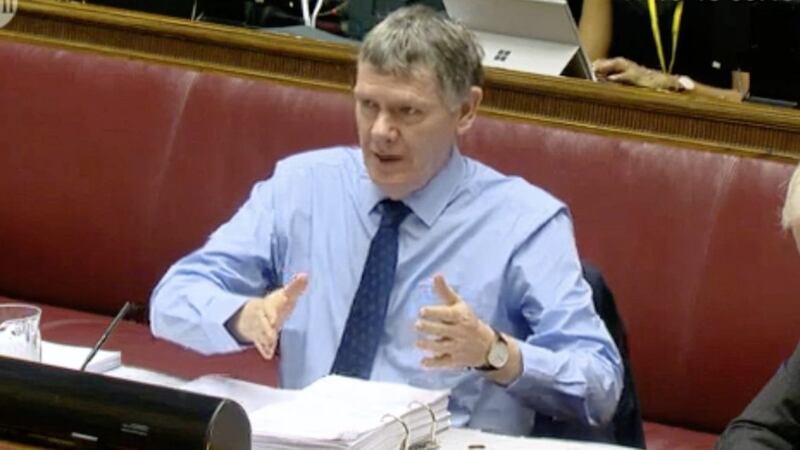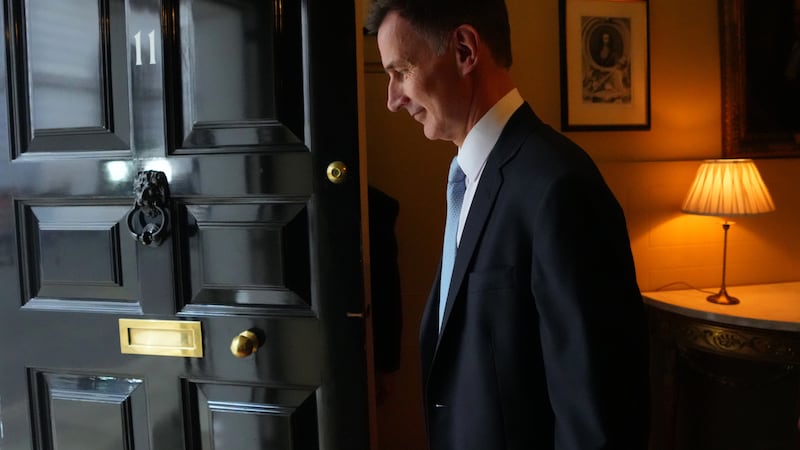STORMONT parties' fear of leaks led to a "culture of very limited record-keeping", a senior civil servant yesterday told the RHI inquiry.
Andrew McCormick said an attitude developed that "if you write something down it'll probably appear in the newspapers".
He said it was a particular issue in the devolved administration because the "tensions are multidimensional in the nature of enforced coalition".
Mr McCormick also told how "tweeting from the executive room" was commonplace despite it being intended as a confidential space for government business.
He said breaches of the ministerial code "happened time and again", but it was "almost impossible to enforce".
Inquiry chair Sir Patrick Coghlin said it would "come as something of a shock" to many in Northern Ireland, adding that Stormont rules were "completely ignored".
"There cannot be, from a public point of view, a positive perception of the political process if that occurs," he said.
It came as the inquiry heard there were no minutes recorded of a key meeting at which it was agreed to delay implementing cost controls for the flawed RHI scheme.
Delays in introducing cost controls brought a spike in applications – pushing the multi-million-pound government scheme hugely over budget.
As permanent secretary, Mr McCormick was the top civil servant in the Department of Enterprise, Trade and Investment (Deti) when RHI problems surfaced in summer 2015 and cost controls were discussed.
Returning to the RHI inquiry, Mr McCormick said: "We should not have got into this culture of very limited record keeping – it's not a good thing."
In his written statement, Mr McCormick said: "I think that the largest single factor that led to very limited recording of reasons for decisions was the political parties' fear of leaks."
Discussing this, he told the inquiry that smaller parties in the executive "always feel they're getting second-class access to information".
He added: "Part of the consequence of that has been a pattern of leaking, tweeting from the executive room when in theory the executive room is a space for private, confidential government business to be done."
In March, David Sterling – head of the Northern Ireland Civil Service – told the inquiry some meetings were not minuted in order to frustrate Freedom of Information (FOI) requests.
His comments sparked an audit by the Information Commissioner's Office to assess the Northern Ireland Civil Service's compliance with FOI legislation.
Mr McCormick said behaviour in response to FOI varied across departments but there was "always a sensitivity around it".
He added: "The deeper underlying point is that sometimes the reasons for decisions were things that the parties would not want to have been either vulnerable to a leak or even ultimately to disclosure in the longer term."
Inquiry panellist Dame Una O'Brien said the lack of note-taking has "very wide ramifications", such as officials tasked with implementing decisions having no record of what has been agreed.
Launched in 2012, the non-domestic Renewable Heat Incentive (RHI) was designed to encourage businesses to switch from burning fossil fuels to more sustainable alternatives.
But the subsidies were worth more than the cost of wood pellets, encouraging firms to 'burn to earn'.
The controversy led to the collapse of power-sharing government at Stormont and the set-up of an inquiry into what went wrong with the green energy scheme.








